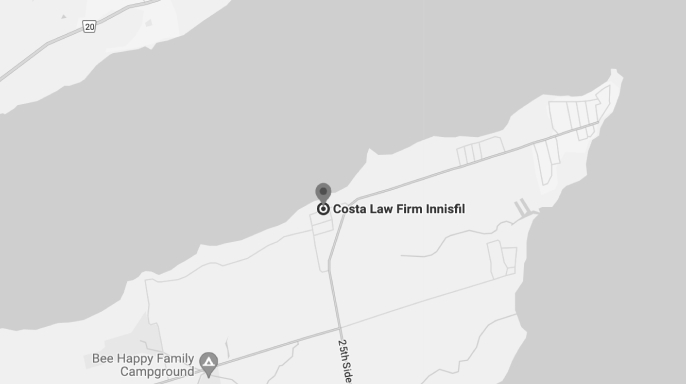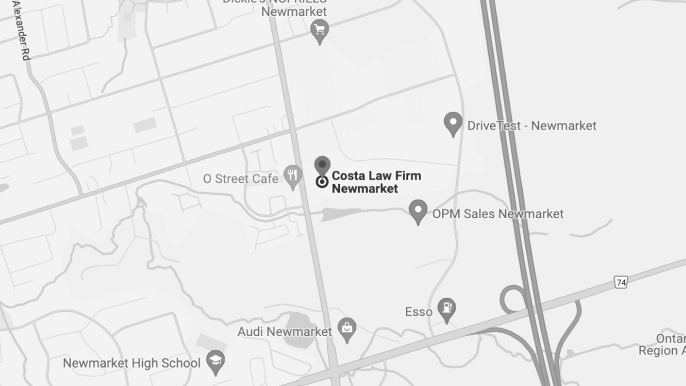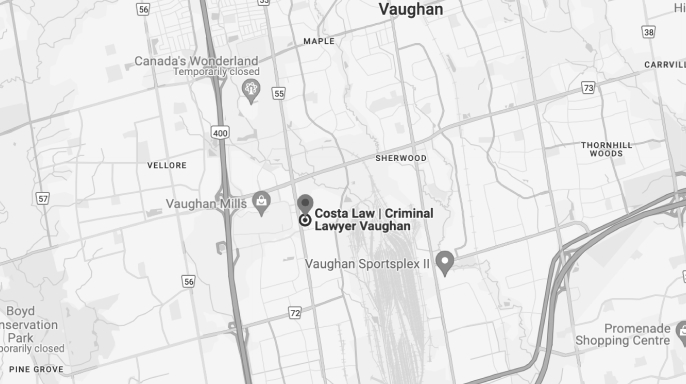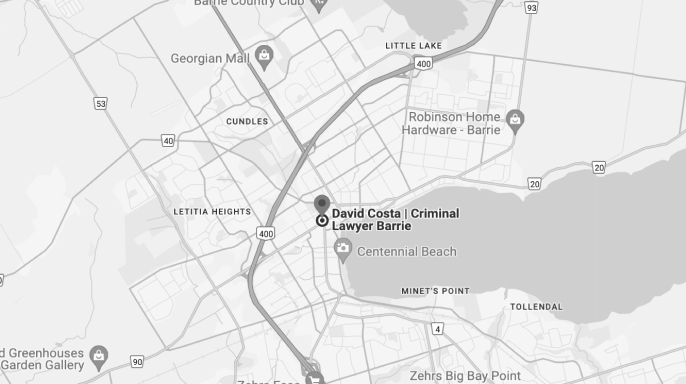You can count on us for legal representation
What’s an Assault Causing Bodily Harm?
An individual may be found guilty of an indictable offence and liable to prison time or guilty of an assault offence punishable on summary conviction if they committed an assault causing bodily harm. For an assault to cause bodily harm, you (the accused) may have carried, used, or threatened to use a weapon or an imitation weapon to cause bodily harm to the alleged victim.
According to s.265 of Canada’s Criminal Code, you can commit an assault causing bodily harm when:
- You apply force intentionally on another person, whether directly or indirectly, without their consent.
- You attempt or threaten to apply force to the other person or cause the person to believe on reasonable grounds that you have the present ability to effect your purpose.
- You impeded or accosted another person while openly wearing a weapon or an imitation thereof.
This definition of assault is highlighted under s.265(2) of the Canadian Criminal Code and is applied to common assault and other assault charges. For the Crown prosecutor to get you convicted of an assault causing bodily harm, it must be proven beyond reasonable doubt that an assault happened. Thus, the case facts must match the definition of assault under s.265 of Canada’s Criminal Code.
Once the prosecution establishes that an assault happened, all essential elements of the crime of assault causing bodily harm must be proven. Thus, the crown will need to prove the following:
Actus Reus (The Guilty Act)
The Crown prosecutor should prove beyond reasonable doubt that you caused bodily harm (the prohibited action) to the alleged victim. The criminal law defines harm as any injury or ‘hurt’ that interferes with the comfort or health of the complainant and is more than just trifling or transient.
Note that the severity of the bodily harm doesn’t need to cause grave interference with the physical well-being of the complainant. Thus, substantial harm isn’t necessary for an accused person to be convicted of an assault causing bodily harm. The prosecution needs to prove that your actions caused ‘interference with comfort’ that’s sufficient to constitute bodily harm.
Mens Rea (The Guilty Mind)
The Crown prosecutor will need to prove beyond reasonable doubt that you could have foreseen the risk of bodily harm due to your actions. Generally, an assault causing bodily harm is an intent offence. Thus, you don’t have to intend (or plan) the consequences of your actions to be found guilty of this hybrid offence.
Even in situations where you acted recklessly, and the complainant suffered serious injuries, the Crown may be able to prove that it was possible to foresee the substantial risk of bodily harm. This is sufficient to meet the mens rea requirement or element.
For an assault causing bodily harm, the ‘guilty mind or mens rea’ requires that the accused could have objectively foreseen the risk of harm associated with their action (assault). Therefore, the judge or jury will determine whether a reasonable person in your position (at the time of the offence) would have known that their actions (assault) would cause bodily harm to the complainant.
At Costa Law, our lawyers understand assault causing bodily harm and its legal elements or considerations. We ensure your rights are protected throughout the legal proceedings. If the elements of assault causing bodily harm are not proven, we prioritize your interests and advocate for the withdrawal of the case.
Penalties for Assault Causing Bodily Harm
The penalty for a conviction of assault causing bodily harm hinges on the prosecutor’s choice between indictment or summary proceedings. Here are the potential penalties upon conviction:
Indictment
If convicted under indictment, the sentence could extend to a maximum penalty of ten years’ imprisonment. Other available sentencing options include discharge, a fine with probation, a suspended sentence, imprisonment with a fine, an intermittent sentence, and combinations thereof. Notably, a conditional sentence is not an option under indictment proceedings.
Summary Conviction
In cases where the Crown proceeds summarily, the maximum penalty may be up to two years less a day of imprisonment and/or a fine of up to $5,000. Similar to indictment proceedings, other sentencing options include suspended sentence, fine with probation, discharge, fine, imprisonment with fine, and intermittent sentence. Further, a conditional sentence may be considered in summary conviction offences.
It’s worth noting that some aggravating factors may increase the likelihood of jail time. These factors include:
- You committed the offence while out on bail
- You committed the assault causing bodily harm in a domestic setting
- You are not a Canadian resident
- You committed the offence in association with or for the benefit of a criminal organization
- You used a prohibited firearm in the assault, causing bodily harm
Remember, assault causing bodily harm is an indictable offence like sexual assault, aggravated assault, and more. These crimes are associated with harsh penalties. Therefore, you need to work with our experienced lawyers to ensure you get the best possible outcome.
Legal Consequences Beyond Criminal Penalties
Beyond the direct criminal penalties, a conviction for assault causing bodily harm can trigger a cascade of lasting consequences that affect various facets of the accused person’s life. These consequences extend beyond the courtroom and may profoundly affect the individual’s future personal and professional life. These include:
Criminal Record
A conviction for assault causing bodily harm results in a permanent criminal record. This stained record casts a dark shadow over the accused person’s employment opportunities, travel prospects, and social standing. Background checks for job applications, volunteer work, or professional licenses may reveal the offence. This can hinder the person’s career advancement and cause societal stigma.
Immigration Status
Non-Canadian citizens convicted of an assault causing bodily harm may face the risk of deportation or become inadmissible to Canada. A criminal record can jeopardize your immigration status, leading to potential removal from the country and limitations on future travel or residency options. Therefore, if you are accused of aggravated assault or any form of assault causing bodily harm, work with a lawyer who can protect your rights.
Civil Lawsuits
Victims of assault causing bodily harm retain the right to pursue civil litigation against the accused person. These lawsuits seek financial compensation for various damages, including medical expenses, rehabilitation costs, pain and suffering, and lost wages or earning capacity. Civil judgments can result in significant financial burdens beyond criminal fines or penalties.
Probation and Community Service
As part of the sentence, the court may impose probation and community service requirements. Probation entails strict supervision and compliance with specified conditions. These conditions include regular check-ins with a probation officer, refraining from alcohol or drug use, or attending counselling or rehabilitation programs.
Community service mandates the performance of unpaid work within the community. This can disrupt the individual’s daily routine and commitments.
No-Contact Orders
In convictions involving assault causing bodily harm, courts often issue no-contact orders that prohibit the accused from contacting the victim directly or indirectly. Violation of these orders constitutes a separate offence and can lead to further legal consequences such as imprisonment or extended probation. Such orders may disrupt personal relationships, cohabitation arrangements, or child custody agreements. This adds strain to familial and social dynamics.
The broader legal implications of assault causing bodily harm underscores the necessity of strategic legal representation. At Costa Law, we provide comprehensive counsel to navigate the complexities of criminal proceedings and mitigate the far-reaching consequences of conviction. Our dedicated team works tirelessly to protect your rights and advocate for the most favourable outcome.
Possible Defence Strategies
Navigating assault causing bodily harm charges demands a strong defence strategy tailored to the details of each case. Our lawyers at Costa Law have a track record of successful defence, backed by many years of experience and an unwavering commitment to protecting our clients’ rights. Here are key legal defences we may use:
Identity Defence
False accusations and mistaken identity are common in aggravated assault charges. Unfortunately, they can lead to wrongful charges. Our legal team will carefully analyze the circumstances of your case, and any suspicion of mistaken identity will be identified. This will allow us to raise an identity defence.
This defence hinges on proving your absence from the scene of the offence through corroborating evidence, such as alibis or witness testimony. A successful identity defence can dismantle the prosecution’s case based on flawed identification.
Self Defense
Under certain circumstances, responding to force with force is permissible under the doctrine of self-defence. Depending on all the circumstances of your case, we can adeptly argue self-defence by demonstrating the presence of an “air of reality” to your belief in facing imminent harm, supported by reasonable grounds.
Your actions must be objectively reasonable in the context of the perceived threat. By successfully establishing self-defence justifies your conduct, we can get you an acquittal.
Defence of Another
Suppose you intervened to protect someone else from an unlawful attack and responded with force in defence without intent to cause death or grievous bodily harm. In that case, the defence of another may apply even when you are charged with an aggravated assault.
Successfully raising this defence justifies your actions and leads to acquittal. Remember, it’s crucial to show that your response was necessary to safeguard another individual.
Reflex Action
Involuntary physical actions triggered by external stimuli constitute reflex actions. The Crown must establish both actus reus and mens rea for an assault causing bodily harm conviction. A reflexive action, being involuntary, negates the requisite intent for a conviction. To raise this defence successfully, we must demonstrate that your action was an involuntary response beyond your control, akin to an automatic reaction to nerve stimulation.
De Minimis
The de minimis non curat lex simply means “the law does not concern itself with trifles.” This principle may provide a defence if your actions are deemed trivial and inconsequential. So, it is possible to show that the act in question falls under this principle, and that can lead to acquittal. However, courts typically apply this defence sparingly in cases involving aggravated assault, sexual assault, and other forms of violence.
Defence of Property
Section 35 of the Criminal Code allows defendants to raise the defence of property in assault causing bodily harm charges or cases. This defence arises when an individual’s peaceful possession of the property is threatened or when defending against trespass or damage.
To succeed, our lawyers must demonstrate that the force used was reasonable in response to the threat posed to the accused’s property. While less commonly invoked, this defence remains a viable option under appropriate circumstances.
Applicable Charter Defenses
The Canadian Charter of Rights and Freedoms guarantees certain rights before and after arrest. Any violation of these rights by the police, whether intentional or inadvertent, can strengthen your defence.
According to section 24(2) of the Charter, all the evidence obtained through Charter breaches can be excluded, potentially weakening the Crown’s case against you. Our experienced legal team will carefully assess the police conduct and leverage Charter protections to your advantage.
Count on our experienced assault causing bodily harm lawyer to create a strategic defence tailored to your assault case. With our experience, competence, and steadfast advocacy, we stand by your side to protect your rights and obtain the best possible outcome.
FREE Case Evaluation
or Call Us: (416) 535-6329
What our clients are saying
Testimonials
Contact Us
FREE Case Evaluation
or Call Us: (416) 535-6329
Costa Law Firm
Costa Law Firm is a law firm located in Toronto with exceptional credentials that stands out for its commitment to client service. Our service minded approach has led Costa Law Firm to be one of the most reliable law firms in Toronto.
Address
Main Office:
1015 Bloor Street West, Toronto, Ontario M6H 1M1
Phone: (416) 535-6329
Fax: 416-535-4735
info@costalawfirm.ca
We provide emergency services for urgent matters.
Consultation Office:
17075 Leslie St Unit 6, Newmarket, ON L3Y 8E1Vaughan location 290 Caldari Rd Unit 8, Concord, ON L4K 4J4, CanadaBarrie location 49 High St 3rd floor, Barrie, ON L4N 5J4, Canada














